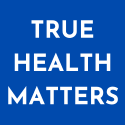Recent research highlights the remarkable role myo-inositol plays in healthy ovulation and fertility.
Myo-Inositol an Important Cellular Messenger
Myo-Inositol (Myo-Ins) is a member of the six-membered carbocyclic polyalcohols known as inositols.
Within the family of inositols, of which there are 9 in total, Myo-Ins and D-Chiro-Inositol (D-Chiro-Ins) play a role in human function.
Myo-Ins, the most common inositol, is found in nearly every tissue of the human body and is most abundant in the brain, blood, fat, kidney, lung, ovaries and testes.
D-Chiro-Ins is the second most common inositol and is also found in tissues containing Myo-Ins, but in lower concentrations.
Both are intimately involved in cellular signaling (the ability of human cells to respond to certain stimuli resulting in appropriate cellular response and function).
Higher Myo-Ins to D-Chiro-Ins ratios are seen in tissues utilizing energy, and in lower ratios in those involved in glucose storage.
The role of Myo-Ins has been well established for years when it comes to its important role in insulin signaling, which is dysfunctional in women with Polycystic Ovarian Syndrome (PCOS).
Supplementation with Myo-Ins in women with PCOS and insulin-resistance has been shown to be clearly beneficial, but the role of Myo-Ins in other important cellular pathways is only now being more clearly understood.
Myo-Ins and Healthy Ovarian Function and Fertility
Recent reports reveal Myo-Ins plays a fundamental role in cellular communication between the hormones produced by the brain responsible for healthy ovarian function and ovulation.
In fact, Myo-Ins is a key messenger of follicle stimulating hormone (FSH) and luteinizing hormone (LH) – the hormones necessary for the development of a follicle within the ovary and ultimately ovulation. This process of ovarian function is also mediated by appropriate insulin signaling in which Myo-Ins is also responsible.
Accordingly, recent research has evaluated the potential benefit of Myo-Ins supplementation with regard to facilitating healthy ovulation and improving various reproductive issues.
Papaleo et al., in a 2007 study, treated women with PCOS and amenorrhea (women not having menstrual cycles at all) with 2 grams of Myo-Ins plus 200 mcg of folic acid, twice per day for 6 months.
Remarkably, the authors found that – after treatment with Myo-Ins – 88% of patients had at least one cycle, and 72% maintained regular menstrual cycles. In addition, 40% achieved pregnancy during the study – showing great promise in the ability of Myo-Ins to restore fertility in women with PCOS and abnormal menstrual cycles.
In a more recent 2017 study by Zheng et al. – Myo-Ins supplementation was found to increase pregnancy rates, and decrease miscarriage rates in women undergoing reproductive treatment.
Interestingly, higher levels of Myo-Ins have been associated with higher quality embryos, and women experiencing miscarriage have been identified as having lower Myo-Ins levels.
Finally, studies have also shown women treated with Myo-Ins required a significantly lower dose of FSH (a certain type of ovulation medication) during fertility treatments to reach follicular maturation during ovulation.
Thus, Myo-Ins has been shown to be beneficial in women with infertility and reproductive disorders – potentially decreasing the amount of required medication needed for ovulation stimulation, increasing embryo quality, and decreasing miscarriage rates.
True Health Matters Summary
Myo-Ins is an important component of healthy cellular communication within the human body and plays an important role in insulin regulation. Recent research brings to the forefront the key role Myo-Ins also plays in the ovulation process with studies showing promising benefits in women with reproductive disorders.
[1] Gambioli R, Forte G, Buzzaccarini G, Unfer V, Laganà AS. Myo-Inositol as a Key Supporter of Fertility and Physiological Gestation. Pharmaceuticals (Basel). 2021 May 25;14(6):504. doi: 10.3390/ph14060504. PMID: 34070701; PMCID: PMC8227031.
Click for References


